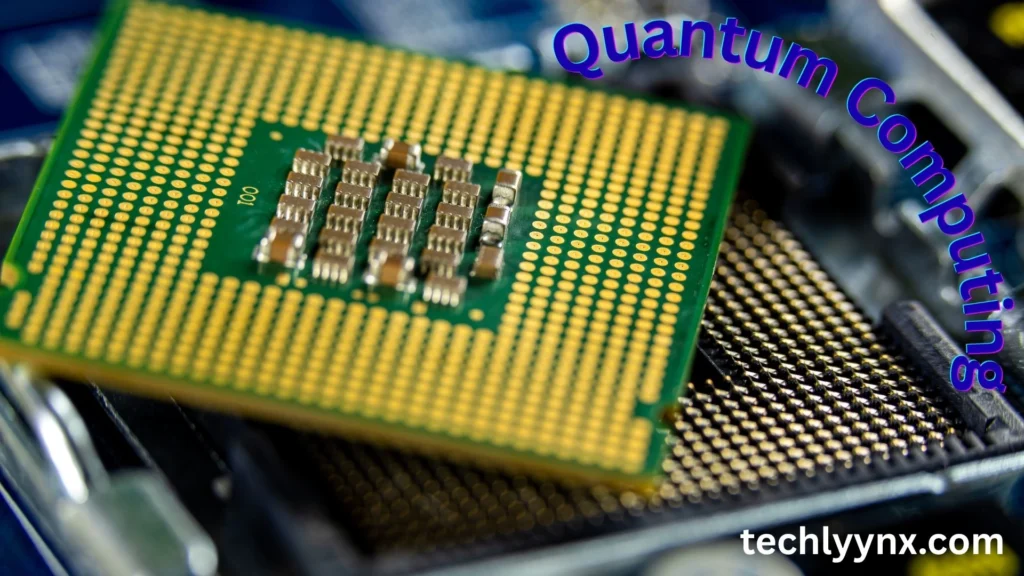Technology is always evolving, and in 2025, quantum computing will be one of the most fascinating new areas. Computers have been processing data in bits, which are either 0 or 1, in accordance with the laws of classical physics for decades. However, quantum computers go beyond this, processing data in previously unthinkable ways by utilizing the peculiar and intriguing laws of quantum mechanics.
We’ll go over what quantum computing is, why it matters, how it operates, and what it can mean for many businesses and daily life in this guide. You only need curiosity and an open mind to grasp it because we’ll keep things easy. A physics degree is not necessary.
What is Quantum Computing?
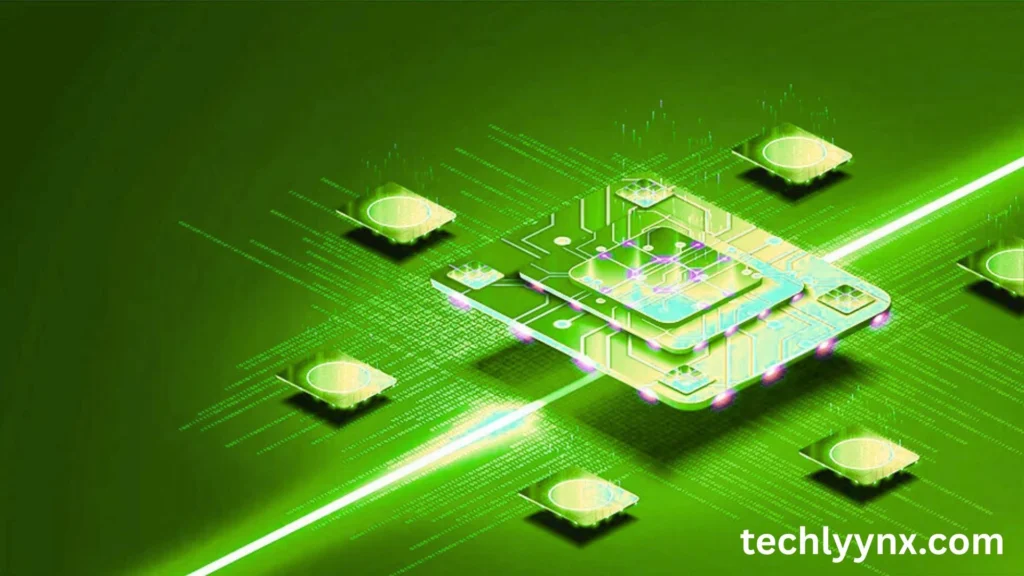
Fundamentally, quantum computing is a novel method of information processing. Qubits are used in quantum computers in place of conventional bits. Superposition is a feature that allows a qubit to simultaneously represent 0 and 1. This makes quantum computers incredibly powerful for some kinds of problems by enabling them to execute several calculations at once.
Consider this: a quantum computer can examine several paths at simultaneously, whereas a conventional computer navigates a maze one path at a time. Quantum computers are just better suited for particular jobs, such as intricate simulations, cryptography, and optimization issues; this does not imply that they are quicker for everything.
How Quantum Computing Works
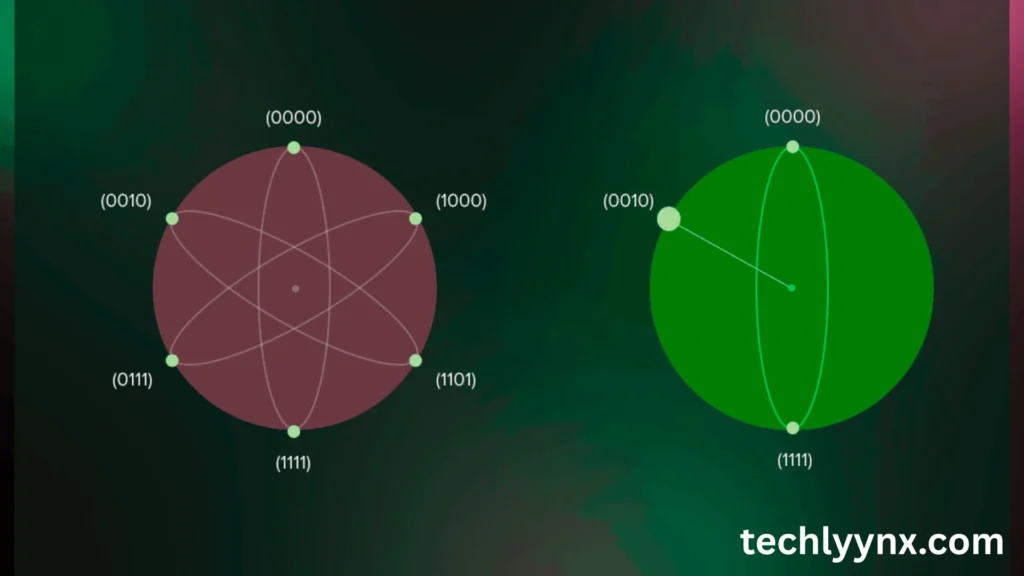
Two key concepts must be understood in order to comprehend quantum computing:
Superposition: As previously stated, a qubit is capable of existing in more than one state simultaneously.
Entanglement: Regardless of the distance between two qubits, the state of one instantly influences the state of the other when they are entangled.
These ideas enable quantum computers to carry out calculations that would take millions of years for traditional computers to finish. To preserve the sensitive quantum states of qubits, they need carefully controlled conditions, frequently close to absolute zero temperatures.
While some businesses, such as Google, IBM, and D-Wave, are developing superconducting qubit systems, others are investigating photonic qubits or trapped ions. Although the technology is still developing, it has advanced quickly.
Why It Matters in 2025
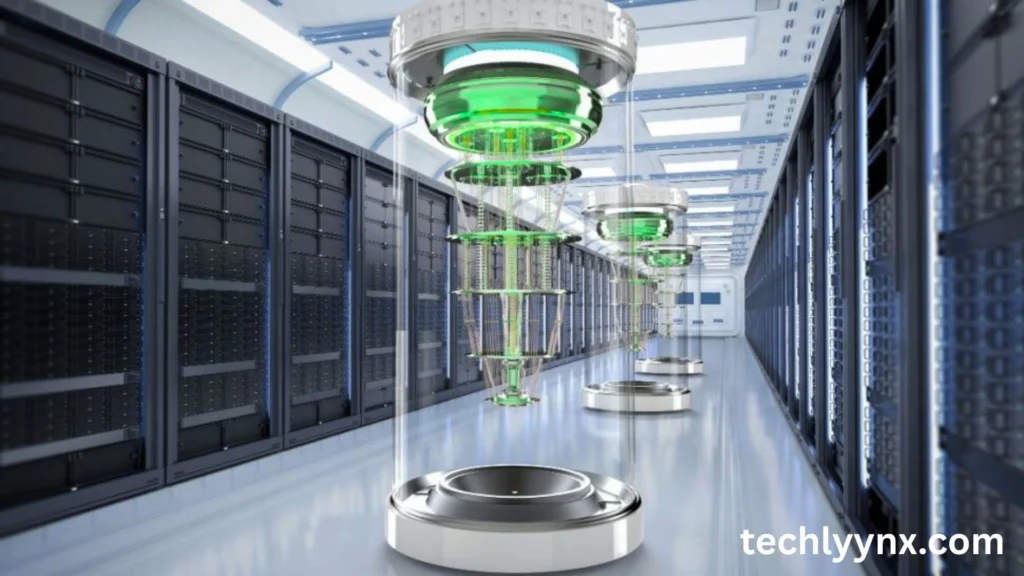
In 2025, quantum computing has moved from being purely theoretical to being tested in real-world applications. Industries like pharmaceuticals, finance, and cybersecurity are actively exploring how to use quantum computers to gain an edge.
For example:
- Healthcare: Quantum computers can simulate complex molecules, speeding up drug discovery.
- Finance: They can analyze massive datasets for risk assessment and portfolio optimization.
- Cybersecurity: They could both break current encryption and help create quantum-proof security systems.
While we’re not yet at the stage where everyone owns a quantum computer, cloud access to quantum systems is becoming more common, letting businesses and researchers experiment with quantum algorithms.
Quantum Computing and Artificial Intelligence
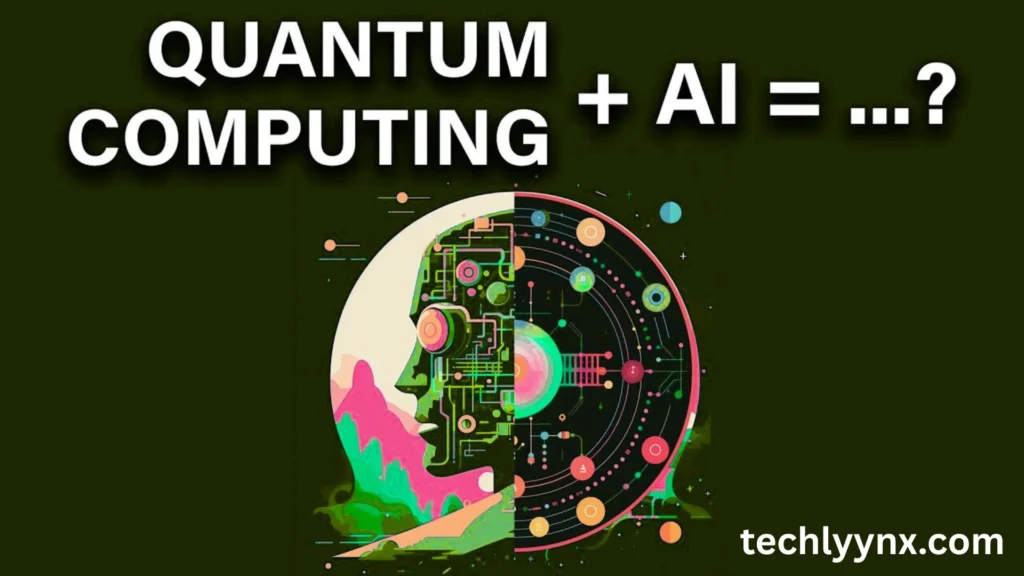
One of the most exciting developments in 2025 is the merging of quantum computing with artificial intelligence (AI). While AI already processes massive amounts of data faster than humans, its capabilities are still limited by the speed and architecture of classical computers. Quantum systems could change that.
Here’s how this partnership could play out:
- Faster Machine Learning Training
Training deep learning models often takes days or even weeks on classical hardware. Quantum algorithms could process vast datasets and identify patterns far more quickly, cutting training times dramatically. - Better Optimization
AI models often need to make “best choice” decisions—such as finding the fastest route for deliveries or the most efficient way to use energy. Quantum algorithms can explore many possibilities at once, providing better solutions in less time. - Enhanced Pattern Recognition
From climate prediction to fraud detection, AI depends on recognizing complex patterns. Quantum computers, with their ability to handle high-dimensional data, could make this process faster and more accurate. - Drug Discovery and Personalized Medicine
AI already plays a role in analyzing medical data, but paired with quantum simulations, it could identify new drugs or treatments tailored to individual patients at record speed.
Challenges and Limitations
Notwithstanding the excitement, there are certain difficulties with quantum computing:
Error rates: Even minute changes in the environment, such as noise, can upset quantum states, which are delicate.
Scalability: It is challenging to construct a large number of stable qubits.
Cost: The cooling systems and technology are very costly.
To solve these issues, researchers are developing novel qubit architectures and quantum error correction. Although the technology is making progress, it will probably take years before quantum computers can do a wide range of tasks better than traditional supercomputers.
The Future
“When will quantum computing actually affect me?” is a question you may have. The solution is more behind the scenes, but sooner than you might assume.
Quantum technology may enable more accurate AI systems, more effective logistical networks, and much more difficult-to-break security systems in the years to come. Quantum innovations may inadvertently improve the intelligence, speed, and security of financial software, healthcare services, and even online shopping.
The finest aspect? To gain advantages, you don’t have to become a quantum physicist. You’ll be prepared for the opportunities and difficulties new technology presents if you keep yourself informed.
Conclusion
In 2025, quantum computing will be a fascinating reality as well as an ongoing project. We are on the cusp of a new technological era that has the potential to completely change how we approach challenges and work with data. Despite the difficulties that lie ahead, the potential benefits are too enormous to pass up.
If history teaches us anything, it is that revolutionary technology frequently begins in research facilities and labs before subtly changing the world. Currently, quantum computing is headed in that direction. It will feel as natural as cellphones do now when it is completely integrated into our daily lives.

